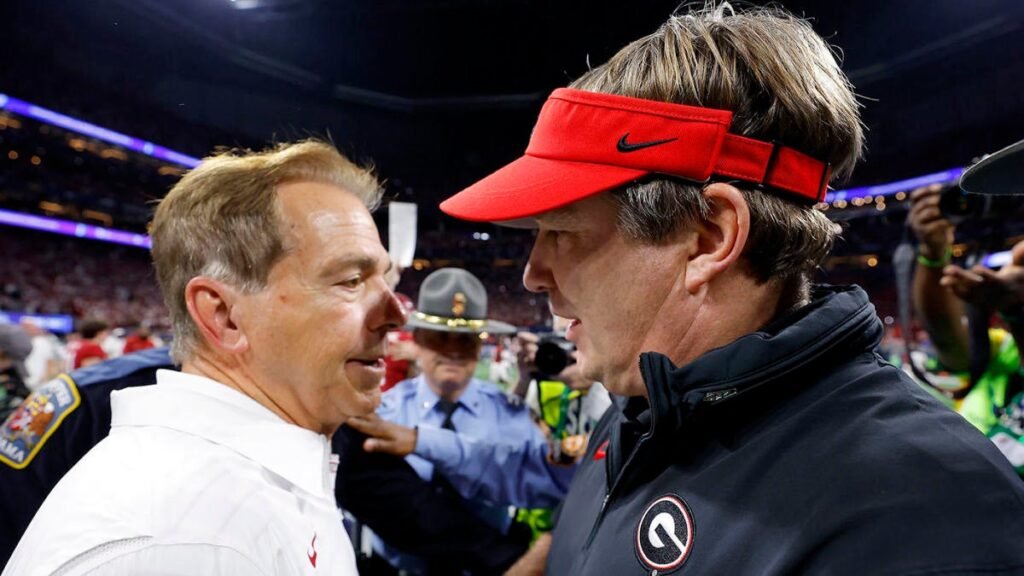Lawmakers in the state of Georgia have introduced legislation to exempt NIL income earned by college athletes at in-state institutions from state income tax. State senator Brandon Beach, along with four co-sponsors, filed Senate Bill 71 on Feb. 4, and the reasoning is simple: to assist Georgia and Georgia Tech in recruiting battles.
“I just think if we’re going to compete with Texas, Tennessee and Florida, who have no income tax, we’ve got to make sure Kirby Smart and Brent Key at our two major universities have the tools in their toolbox to be able to compete for these five-star athletes,” Beach told CBS Sports. “That’s all this bill does, is help Georgia and Georgia Tech be competitive with states that do not have an income tax.”
Beach said he wasn’t approached by anyone affiliated with Georgia or Georgia Tech. Rather, the idea came from an unlikely source.
“I had dinner at Lake Burton with Nick and Terry Saban and my wife and I and another couple, and he loves Kirby Smart like a son,” Beach said. “And he said, ‘If you want to help Kirby until they figure out all this in NIL stuff, one thing you could do is eliminate the income tax on NIL athletes.’ So I got the idea actually from Nick Saban.”
A spokesman for Georgia Tech declined comment. Representatives for Georgia and Saban did not respond at time of publish.
National Signing Day as we knew it is dead, and its decline bodes poorly for college football’s future
Tom Fornelli
Forty-one states and the District of Columbia have an income tax. Georgia’s tax rate is 5.39%, down a quarter of a percent from last year. How athletes handle their taxes (and how much financial education schools provide to them) is a hot-button issue in the NIL era. It even varies in how schools handle taxes in the agreements they’re sending players to sign in advance of the finalization of the House settlement.
In a term sheet between a Big Ten school and an athlete reviewed by CBS Sports, there is a clause that says a third-party may administer payments to the athlete and could withhold taxes; however, a term sheet between a Big 12 school and an athlete has no such language in it.
This isn’t the first time the Georgia legislature has tried to help its in-state power programs. In 2016, the state altered open records laws in consultation with Smart to slow public access to athletic department information.
Beach is bullish on the bill’s chances to eventually become law and feels it will have a strong backing in the legislature for instance. Lieutenant Governor Burt Jones, who presides over the state senate, played for the Bulldogs from 2000-2002.
“I feel very strongly that it’ll pass,” Beach said. “It’s going to go to committee next week, and then I’ll get it out [to the rules committee] and I serve on rules. We’ll get it out and get it on the [Senate] floor and debate it and pass it.”
Read the full article here


